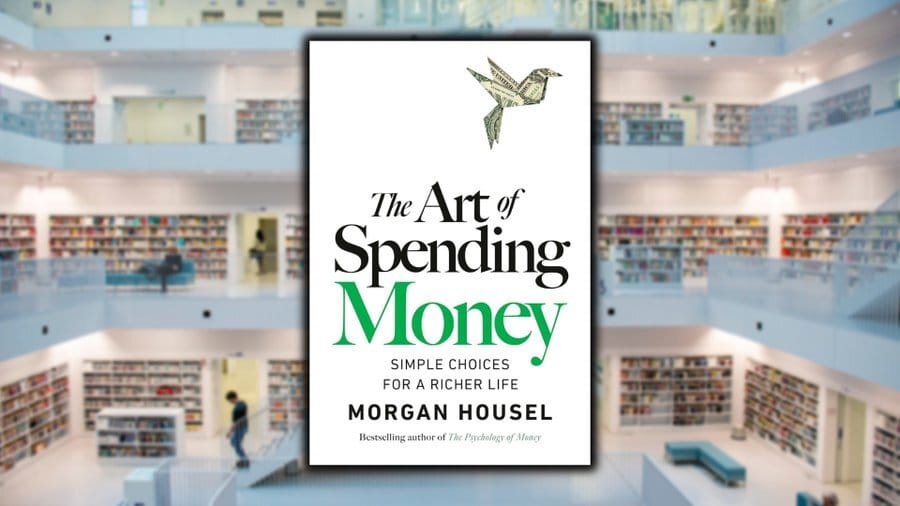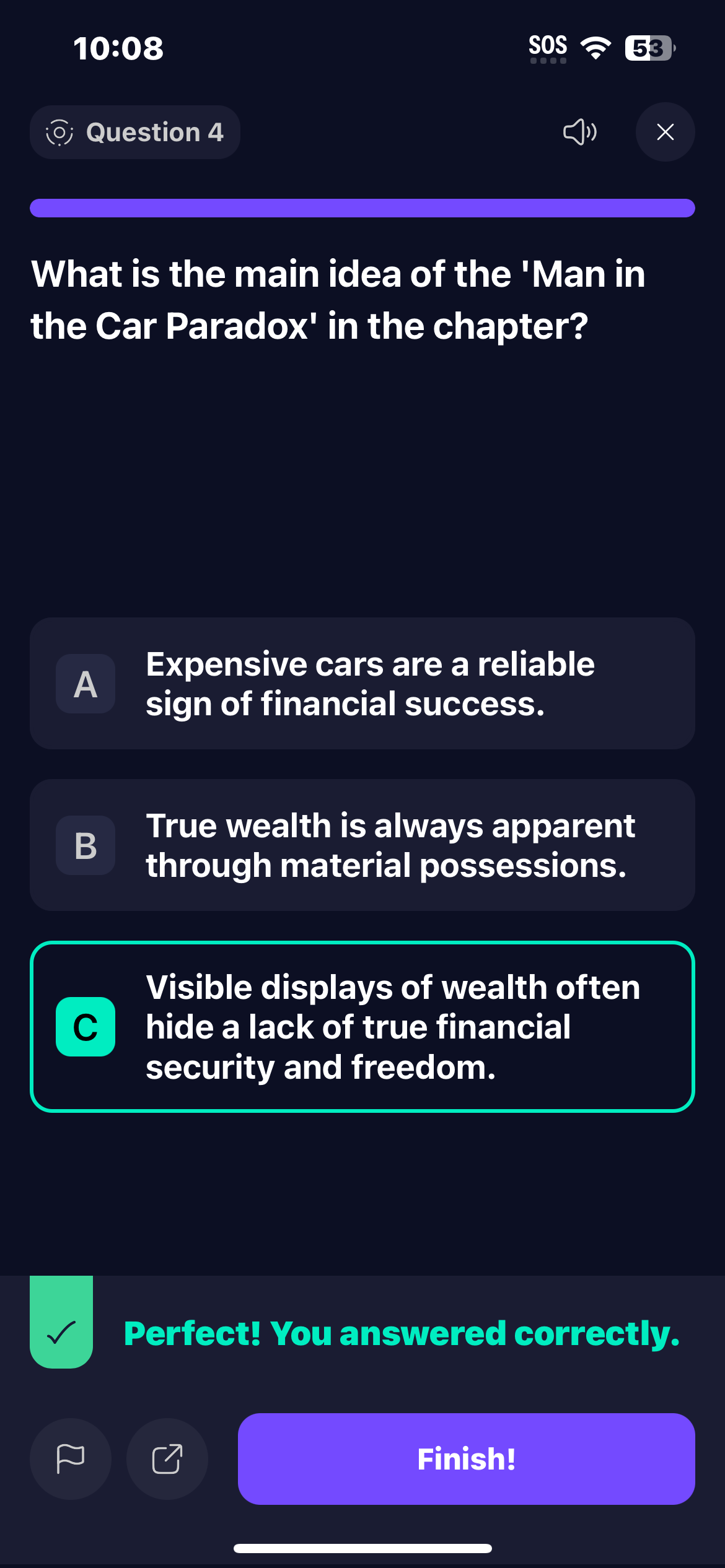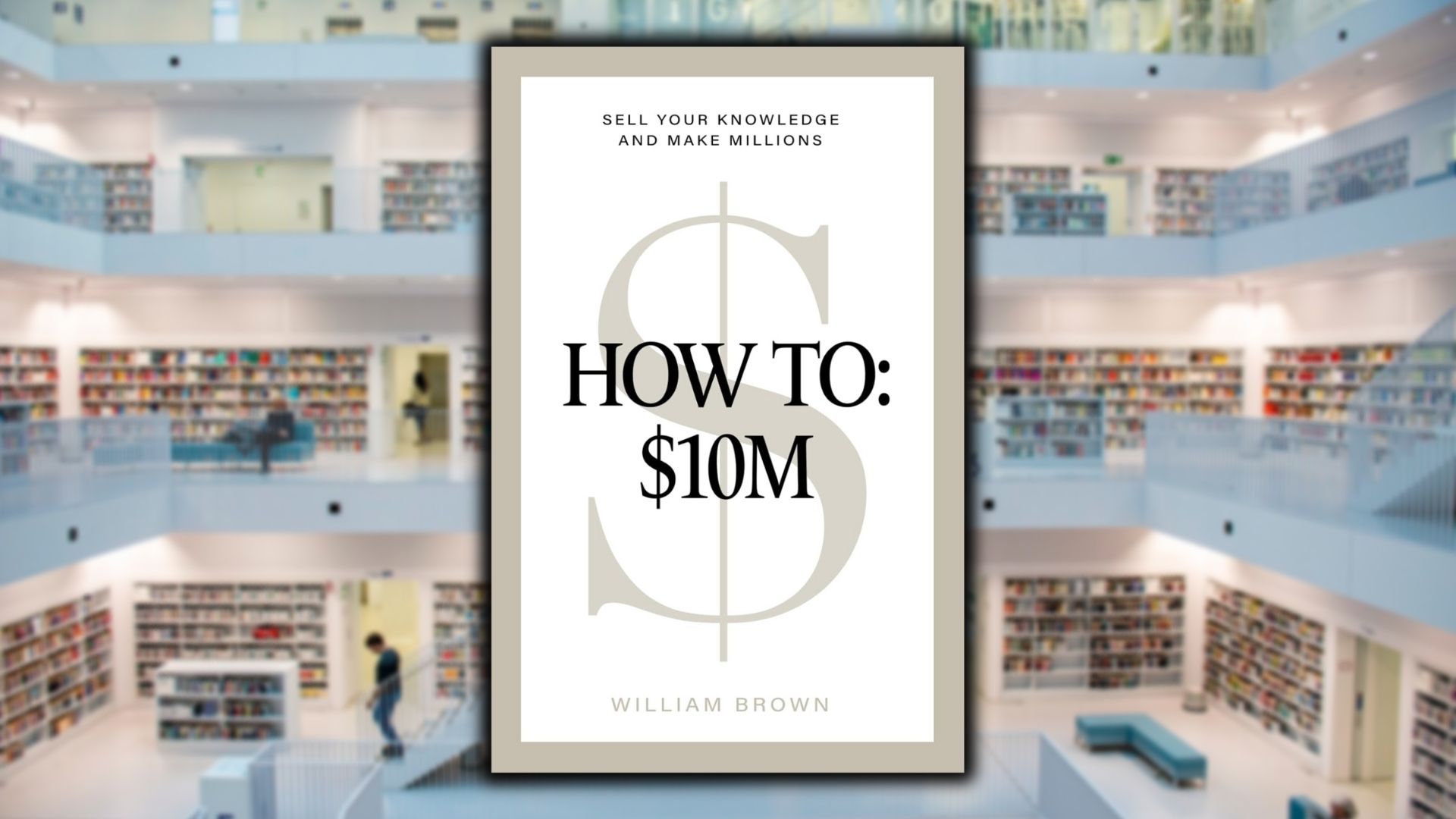Morgan Housel is one of the few living authors who, whenever they come out with a new book, I will immediately drop everything and read it.
And, well, I guess dead authors don’t ever come out with new books, so I don’t know why I said “living” authors just now. Anyway, the point being…
The Art of Spending Money is…sensational.
I loved The Psychology of Money (as did millions of other people), and I still think Same as Ever is his best book, but this one?
It’s easily one of the best books I’ve read so far in 2025 (out of 69 books, it’s probably top three), and my full summary as well as all of my notes and takeaways is below.
Now, before our coffees get cold, let’s hit the books!
“We are here to guide public opinion, not to discuss it.”
“A Formula for YouTube Ad Success:
0-10 Seconds: Hook, or con to not watching.
10-60 Seconds: Promise/Explanation/The How/Testimonials/Call to Action
60-120 Seconds: Benefits/Without This Thing/Results
120 Seconds Onward: Testimonials/Call to Action/End Screen
Pro Tip: Never end your ad without running some testimonials for up to 15 seconds afterwards, to let people digest the ad and click the link before it shuts off.
If your ad suddenly ends and they are thrown back into watching the TikTok or YouTube video that they were watching, they will quickly forget about you, your ad, and the website you just mentioned.”
Inside my private business mastermind, Creator Launch Academy, we’re tackling one nonfiction book per month and implementing its lessons inside our businesses.
This month’s book is How To: $10M, by William Brown, a great business book that contains everything you need to know about scaling a coaching and/or e-learning business to more than $10,000,000 in revenue.
Click here to claim your free trial, and join our business book club for educational content creators!


After achieving my (somewhat meaningless) goal of reading 1,000 books before I turned 30, I set a new (also meaningless but cool) goal of reading 10,000 books. As of today, I’ve read exactly 1,423 books, including 69 books so far this year, and if you’re interested, here’s my full Reading List.
“In between the numbers, charts, and data sits the messiness and absurdity of the human mind. Money is a remarkable tool that can provide a better life if you know how to use it. But knowing how to use it is quite different from knowing how to acquire it.”
The Art of Spending Money is yet another great book by Morgan Housel, this time about what money can buy, what it can’t buy, and how to tell the difference.
I ended up with twelve pages of notes from the thing, and it’s easily one of the best books I read in 2025. I’ll still be thinking about what I learned from it in 2035. Likely longer.
A few terms stand out that helped me think completely differently about money and its relationship to my life and happiness. One is “social debt,” which refers to how there are often hidden costs associated with certain large purchases and expenditures.
Once you’re expected to spend money, you have to keep spending money, or else risk losing the status you’ve gained within your newly-entered socioeconomic reference group.
Then there are ideas like “mental liquidity,” meaning the ease with which you’re able to change your mind based on new information. Housel also talks about how memories of past experiences can appreciate and grow in value as you get older - similar to Bill Perkins’ concept of “memory dividends” in his book, Die with Zero.
One of the main lessons of the book is that people are so often clueless about what will actually make them happy. The wrong question to ask in that situation is, “Can money buy happiness?” Rather, you might ask, “How can money buy happiness?”
“What haven’t I tried spending money on yet that might actually improve my life? What’s my thing? And how can I reduce the unnecessary spending in the other areas of my life so that I can spend even more money on what will truly make me happy?”
However, there are very few “shoulds” in this book, for the simple reason that you, and you alone, know what’s best for you. The Art of Spending Money isn’t prescriptive as much as it is about helping you detach from the emotional element of money and look somewhat dispassionately at its true nature.
It’s even forced me to reevaluate my own spending. As I write this, I’ve sold my Porsche and I’m getting the down payment ready for my first Lamborghini (a used one). I like to travel, I love going to death metal concerts, and I spend loads of money on books. But I’ve been wearing the same two sweaters for the last five years.
I have zero interest whatsoever in buying some giant house. It’s extremely rare that you’ll find me eating at expensive restaurants, and you’ll never catch me waiting in line for the latest iPhone. My spending decisions in one area of my life look completely different than they do in another area of my life, and that’s because I carry virtually zero “social debt.”
My spending habits are inconsistent, which, as Morgan Housel argues in the book, is likely a good thing. It means that I’m making my own purchasing decisions, not buying what random strangers “expect” me to buy.
First-class flights will always seem like a giant waste of money to me; instead, I’ll throw the money I would have spent on leg-room for three hours into index funds and crypto. I’ll spend ridiculous amounts of money on buying time, freedom, and independence, and virtually nothing on fancy vacations.
As you can imagine, this is a book that can keep you busy for long after you’ve read it. Housel covers a lot of ground (in this, and in his other two books, which are also excellent), and virtually everybody can make astounding financial progress (and “peace of mind” progress) by thinking deeply about what he has to say.
I’m calling it right now: many of the things I’ve thought about and pondered as a result of reading this book will seep into my consciousness, quietly informing my spending decisions for many years to come.
Another main idea you could take away from the book is that if you don’t think money can buy happiness, you just haven’t yet found your “thing.” It could be something physical, like a car. You’ll get no judgement from Morgan and I.
Or maybe you’ll discover that giving money away makes you stupidly happy and that you’d love to devote your life to that pursuit instead. Or maybe you’re happiest when you’re saving 50% of your paycheck, buying time, freedom, and independence that you can cash in later whenever you want.
It’s your life. It’s your money. Take inspiration from others, sure, but don’t allow them to dictate your spending decisions or desires. Learn who you are.
Try a million things (wide funnel, strong filter), discard what doesn’t work for you, and through trial and error discover what does. Assume that you don’t actually know what will make you happy, for the simple reason that you haven’t tried enough things.
But maybe, through this gradual, iterative process of spending and searching, searching and spending, and then discarding and deciding, you can begin to find out.
“None of these topics have to do with spreadsheets or numbers. They’re so much messier than that. It’s all psychology, sociology, and understanding how everyone’s different.
Understanding how everyone’s just trying to make it through life the best they can, making sense of the world given the experiences they’ve had, who they want to be, and what they think others think of them.
In school, finance is taught as a science, with clean formulas and logical conclusions. But in the real world, money is an art.”
“Enduring happiness is found in contentment, so those happiest with money tend to be those who have found a way to stop thinking about it.”
“Most debates about what’s worth spending money on are actually just people with different life experiences talking over each other.”
“An important question I love is: What have you experienced that I haven’t that makes you believe what you do? And would I believe the same if I experienced what you have?”
“The more you say to yourself, ‘I would be happier if I had this new car,’ the more you’re just focusing on the fact that you’re not happy right now. Desire is a hidden form of debt that must be repaid before you get to feel any happiness.”
“People from a planet without flowers would think we must be mad with joy the whole time to have such things about us.”
“There’s almost no end to this. The millionaires look at the centimillionaires, who look at the billionaires, who look at the decabillionaires, who look at the centibillionaires. And what do the centibillionaires want? Immortality.”
“Happiness is that feeling you get right before you need more happiness.”
“There is no such thing as an objectively good experience - every amount of ‘good’ is just the gap between expectations and reality. It’s the distance between what you have now and what you either had or expected before. The contrast, not the amount, is what makes you happy. Few things are more important to keep in mind while spending money.”
“The amazing thing about memories is how they can compound over time, just like a stock. When I was ten years old, memories of what I did at age nine were boring. Today, those same memories are astounding and hilarious to recall as I can put them into the greater context of my life. In fifty years, they will be my most cherished possessions.”
“Saving for the future creates independence today. If I save $100 for the future, what does that cost me today? I don’t think the answer is $100, or anything close to it.
Sure, I could have used that money today to buy a $100 shirt or a $100 dinner with friends. But by saving it for the future, I gain something today: $100 in independence.
One hundred dollars in options and freedom to do anything I want in the future that costs $100. One hundred dollars of time that I might need at some point. One hundred dollars of reduced stress about my ability to care for my family or retire when I need to.
That can be as tangible a benefit to me today as buying the $100 shirt. Once you view savings as providing the benefit of independence, you stop viewing saving for tomorrow as sacrificing today.”
“How to live a good life is endlessly complicated, but sometimes the best way to understand a complicated topic is to pay close attention to the few big rules that carry the most weight. Let me propose one: The simplest formula for a pretty nice life is independence plus purpose.”
“The concept of f**k-you money - having so much money that you can tell people to f**k off without fear of repercussion - is great. But so is kindness and civility. So I aspire to ‘No, thank you, I’m not interested in that, I respectfully disagree, and I’m free to ignore you’ money. One is rationalizing being a jerk, the other is intellectual independence.”
“I am 100% happy to watch you get really rich doing something that I have no interest in doing.”
“No one can recognize how many different ways there are to live a life, and how imperfect they are, and honestly say they’re doing everything right.
I’ve also changed my mind about plenty over the years. And the right lesson from changing your mind is wondering which other of your beliefs you’ll eventually update. When you accept how messy money can be, you value good-enough simplicity over the false comfort of complexity.
Over the years, I’ve come up with a few simple thoughts that guide how I think about money in my own house:
Spend less than you make; quietly compound; money serves you, not the other way around; no one is thinking about you as much as you are; independence is wealth; health is wealth; aim to be a good ancestor; and love your family.
That’s a pretty comprehensive list.”
Forward this to a friend you think would love this book!
If you were sent this newsletter, click here to subscribe.
To read past editions of The Reading Life, click here.
Click here to recommend The Reading Life on Twitter (X).
OK, that’s it for now…
I’ve got plenty more excellent book recommendations coming your way soon though!
There’s also my YouTube channel, where I publish book reviews, reading updates, and more each week.
And if you want to learn how I’ve built an audience of 170,000+ followers across social media, became a full-time creator, and how I’m rapidly growing my audience and my profits in 2025, join us inside Creator Launch Academy and that’s exactly what I’ll teach you — we’d love to have you in the community!
With that said, I hope you enjoyed this edition of The Reading Life, and enjoy the rest of your day!
Until next time…happy reading!
All the best,
Matt Karamazov
P.S. Whenever you're ready, here are two more ways I can help you:
Creators: Book a 1-1 strategy call with me and I’ll show you how to reach $5K/month in revenue by following a custom plan that we’ll build together.
Join Creator Launch Academy, my private business mastermind for educational content creators who want to stand out in their niche, build multiple revenue streams, and go full-time with their creative passions.












